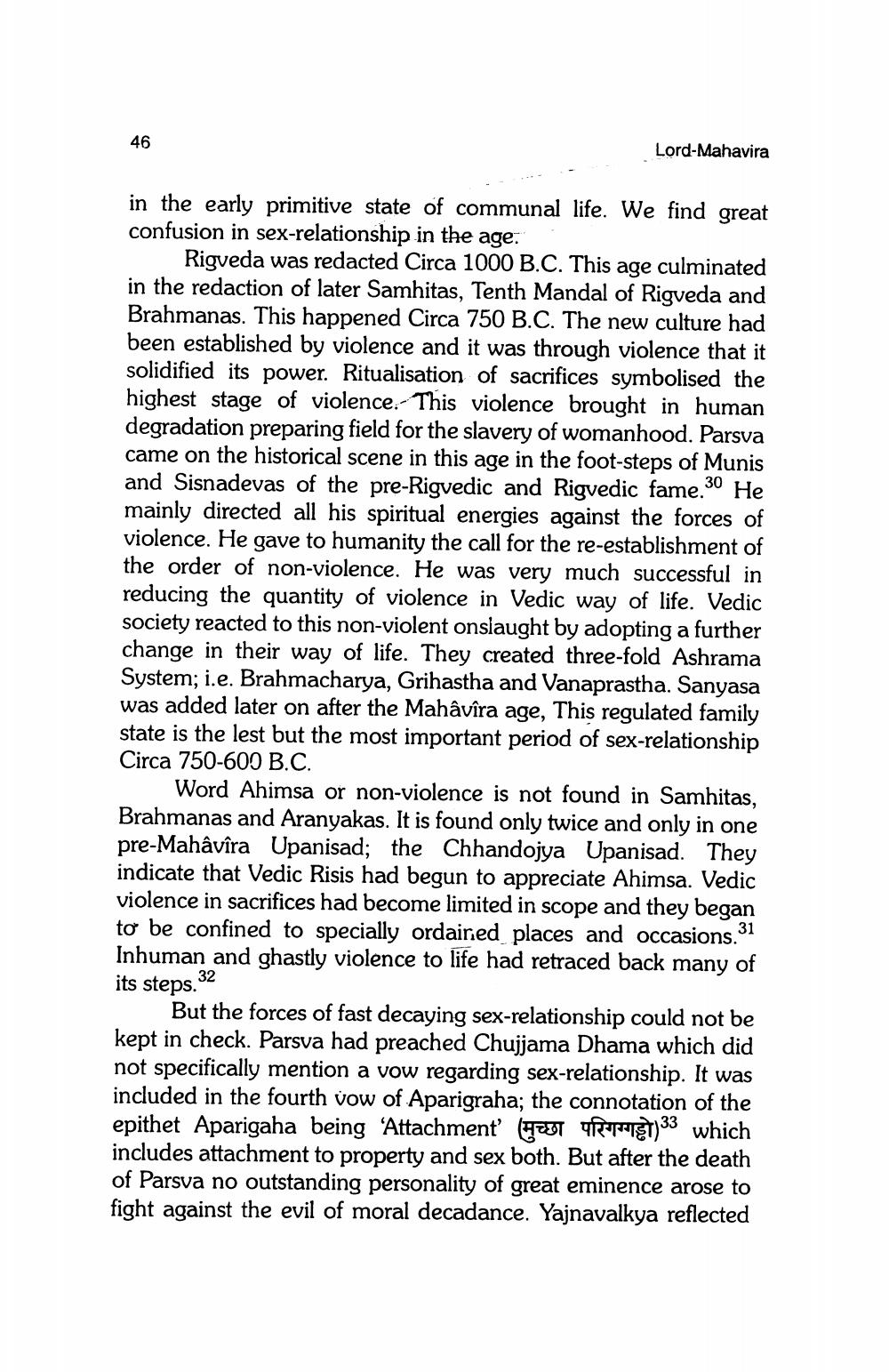________________
46
Lord-Mahavira
in the early primitive state of communal life. We find great confusion in sex-relationship in the age.
Rigveda was redacted Circa 1000 B.C. This age culminated in the redaction of later Samhitas, Tenth Mandal of Rigveda and Brahmanas. This happened Circa 750 B.C. The new culture had been established by violence and it was through violence that it solidified its power. Ritualisation of sacrifices symbolised the highest stage of violence. This violence brought in human degradation preparing field for the slavery of womanhood. Parsva came on the historical scene in this age in the foot-steps of Munis and Sisnadevas of the pre-Rigvedic and Rigvedic fame.30 He mainly directed all his spiritual energies against the forces of violence. He gave to humanity the call for the re-establishment of the order of non-violence. He was very much successful in reducing the quantity of violence in Vedic way of life. Vedic society reacted to this non-violent onslaught by adopting a further change in their way of life. They created three-fold Ashrama System; i.e. Brahmacharya, Grihastha and Vanaprastha. Sanyasa was added later on after the Mahâvîra age, This regulated family state is the lest but the most important period of sex-relationship Circa 750-600 B.C.
Word Ahimsa or non-violence is not found in Samhitas, Brahmanas and Aranyakas. It is found only twice and only in one pre-Mahâvîra Upanisad; the Chhandojya Upanisad. They indicate that Vedic Risis had begun to appreciate Ahimsa. Vedic violence in sacrifices had become limited in scope and they began to be confined to specially ordained places and occasions. 31 Inhuman and ghastly violence to life had retraced back many of its steps.
32
But the forces of fast decaying sex-relationship could not be kept in check. Parsva had preached Chujjama Dhama which did not specifically mention a vow regarding sex-relationship. It was included in the fourth vow of Aparigraha; the connotation of the epithet Aparigaha being 'Attachment' (7)33 which includes attachment to property and sex both. But after the death of Parsva no outstanding personality of great eminence arose to fight against the evil of moral decadance. Yajnavalkya reflected




